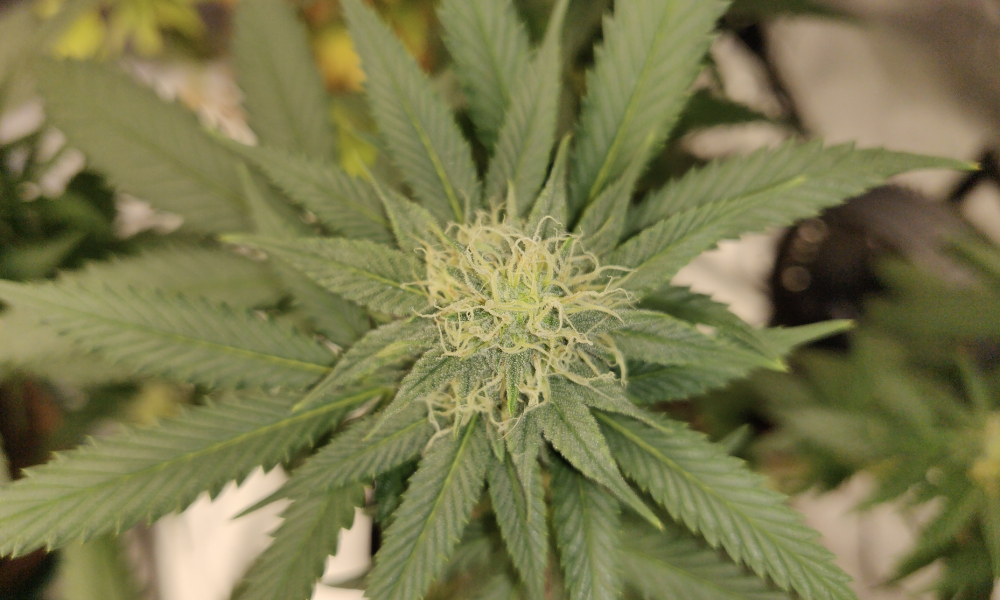Oklahoma activists on Thursday filed a pair of 2022 ballot initiatives to legalize adult-use marijuana and remodel the state’s existing medical cannabis program.
The measures were formally turned in to the secretary of state’s office, a key step that sets the stage for signature gathering to qualify the proposed constitutional amendments.
Oklahomans for Responsible Cannabis Action (ORCA) announced late last month that it was close to finalizing the language of the initiatives after soliciting feedback from a wide range of advocates and stakeholders.
Jed Green, director of ORCA, said in a press release that the initiatives are meant to fix issues that have emerged in the state’s medical cannabis program while also providing a new industry opportunity with adult-use legalization. He said they will “offer Oklahomans the opportunity to keep the success and clean up the mess.”
Under the recreational legalization proposal, adults 21 and older would be able to possess up to eight ounces of marijuana that they purchase from retailers, as well as whatever cannabis they yield from growing up to 12 plants for personal use.
Marijuana sales would be subject to a 15 percent excise tax, and the initiative outlines a number of programs that would receive partial revenue from those taxes. The money would first cover implementation costs and then would be divided to support water-related infrastructure, people with disabilities, substance misuse treatment, law enforcement training, cannabis research and more.
The measure also lays out pathways for resentencing and expungements for those with marijuana convictions.
Oklahoma voters approved medical cannabis legalization at the ballot in 2018. Unlike many state medical marijuana programs, it does not require patients have any specific qualifying conditions; doctors can recommend cannabis for any condition they see fit.
But while the new initiatives would appear separately on the ballot if they qualify, activists view them as complementary.
The second new measure would establish the Oklahoma State Cannabis Commission (OSCC) to oversee all areas of the medical marijuana system. It temporarily maintain a seven percent excise tax on medical cannabis sales, with revenue supporting marijuana research, rural impact and urban waste remediation, agriculture development, mental health response programs, substance misuse treatment and more.
At the same time, the adult-use initiative calls for a gradual decrease of medical marijuana tax, which would reach zero percent within one year of its enactment. Also, within 60 days of enactment, the state’s existing medical cannabis dispensaries would be permitted to sell to the recreational market.
Oklahoma activists had previously attempted to qualify a legalization measure for the 2020 ballot. They filed a petition to legalize cannabis for adult use in December 2019, but signature gathering fell short due in part to procedural delays and the coronavirus pandemic.
Both of the newly finalized initiatives would be constitutional amendments, meaning activists will need to collect at least 177,958 valid signatures from registered voters on each to qualify them for the ballot.
Oklahoma is one of a growing number of states where activists are working to place drug policy reform before voters next year.
Nebraska marijuana activists have begun petitioning for a pair of complementary initiatives to legalize medical cannabis that they hope to place on the state’s 2022 ballot.
Ohio activists have cleared a final hurdle to begin collecting signatures for a 2022 ballot initiative to legalize marijuana in the state.
Florida activists recently filed a ballot measure to legalize marijuana for adult use.
South Dakota marijuana activists are now ramping up for a signature gathering effort to put marijuana legalization on the 2022 ballot as the state Supreme Court continues to consider a case on the fate of the legal cannabis measure that voters approved last year.
New Hampshire lawmakers are pursuing a new strategy to legalize marijuana in the state that involves putting a proposed constitutional amendment on the ballot for voters to decide on in 2022.
Lawmakers in Maryland are also crafting legislation to place a marijuana legalization referendum on the 2022 ballot after the House speaker called for the move.
Missouri voters may see a multiple marijuana initiatives on the state’s ballot next year, with a new group filing an adult-use legalization proposal that could compete with separate reform measures that are already in the works.
Arkansas advocates are collecting signatures to place adult-use marijuana legalization on the ballot.
Activists in Idaho are working to advance separate measures to legalize possession of recreational marijuana and to create a system of legal medical cannabis sales. State officials recently cleared activists to begin collecting signatures for a revised initiative to legalize possession of marijuana that they hope to place before voters on the 2022 ballot. Meanwhile, a separate campaign to legalize medical cannabis in the state is also underway, with advocates actively collecting signatures to qualify that measure for next year’s ballot.
After a House-passed bill to legalize marijuana in North Dakota was rejected by the Senate in March, some senators hatched a plan to advance the issue by referring it to voters on the 2022 ballot. While their resolution advanced through a key committee, the full Senate blocked it. However, activists with the group North Dakota Cannabis Caucus are collecting signatures to qualify a constitutional amendment to legalize cannabis for the 2022 ballot.
Wyoming’s attorney general recently issued ballot summaries for proposed initiatives to legalize medical marijuana and decriminalize cannabis possession, freeing up activists to collect signatures to qualify for the 2022 ballot.
And it’s not just marijuana measures that reform activists are seeking to qualify for state ballots next year. A California campaign was recently cleared to begin collecting signatures for an initiative to legalize psilocybin. And advocates in Washington State have announced plans to put a proposal to decriminalize all drug before voters.
Meanwhile, voters in more than a dozen Ohio municipalities will decide on ballot measures to decriminalize marijuana next month.
California Governor Signs Bill Legalizing Smokable Hemp And Sale Of CBD-Infused Foods And Drinks
Photo courtesy of Mike Latimer.
Medical Disclaimer:
The information provided in these blog posts is intended for general informational and educational purposes only. It is not a substitute for professional medical advice, diagnosis, or treatment. Always seek the advice of your physician or other qualified healthcare provider with any questions you may have regarding a medical condition. The use of any information provided in these blog posts is solely at your own risk. The authors and the website do not recommend or endorse any specific products, treatments, or procedures mentioned. Reliance on any information in these blog posts is solely at your own discretion.







